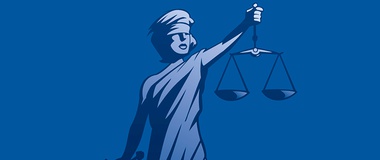In the realm of human understanding, justice stands as an unassailable pillar. Among the rich tapestry of Bahá’í teachings, the concept of justice occupies a central and inescapable role. The articulation of this principle extends beyond mere dogma; it is enshrined in a comprehensive framework that seeks to unite individual spirituality with communal obligations. The inescapable logic of justice is deeply interwoven with various facets of human existence, offering profound insights into both individual and collective conduct.
The Bahá’í paradigm of justice contemplates an integrative approach, one that extends beyond the juridical interpretations typically endemic to legal systems. At its core, Bahá’í justice is an embodiment of divine attributes, suggesting that human endeavors in justice must reflect a higher moral standard. This elucidation invites further examination into the ecclesiastical and social dimensions where justice manifests.
One of the fundamental characteristics of Bahá’í justice is its intrinsic link to unity. This concept is not merely about equitable treatment but emphasizes the inherent interconnectedness of humanity. The Bahá’í teachings argue that justice cannot thrive in an environment rife with division and discord. Thus, for justice to flourish, one must cultivate a spirit of unity that transcends individual desires and embraces a broader communal ethos. The practical implication here involves prioritizing collective interests over personal grievances, an arduous yet rewarding endeavor.
Moreover, Bahá’í justice illuminates the concept of proportionality, an essential element in the administration of justice. This principle advocates for responses that are commensurate with the infractions committed. In an era marked by polarized perspectives on punishment and rehabilitation, the Bahá’í perspective offers an intriguing juxtaposition. It argues that responses to injustice should be informed by compassion and an understanding of context, favoring restorative practices over retributive impulses. This philosophical stance advocates for a paradigm shift in how societies administer justice—not merely punitive, but also restorative, aiming to heal both victim and perpetrator.
Further examining the Bahá’í conception of justice, one encounters the ideal of universal participation. Justice is posited as a communal responsibility. Therefore, each individual’s actions contribute to the overarching tapestry of justice within society. This calls for active participation from all sectors of society, encouraging individuals to not merely seek justice for themselves but to advocate for a collective sense of fairness. Participatory justice implicates every member of society, cultivating a moral obligation to engage in discourse and action that promotes justice for all.
The role of education cannot be overstated in the pursuit of justice according to Bahá’í teachings. Education serves as the bedrock upon which equitable societies are constructed. An educated populace is better equipped to discern injustices, articulate grievances, and engage in advocacy. Therefore, the Bahá’í perspective emphasizes the necessity of elevating educational standards as a method for fostering an environment conducive to justice. This education transcends conventional academic learning, embedding moral and ethical considerations within curricula to develop individuals who are not only knowledgeable but also socially responsible.
The Bahá’í teachings further advocate for the elimination of prejudice as a prerequisite for establishing justice. Prejudice, in all its forms—racial, economic, religious—corrupts the very fabric of humanity and undermines communal harmony. The teachings assert that unearthing and addressing these biases is essential for the realization of true justice. To this end, individuals are encouraged to engage in self-reflection and communal dialogue to unearth the implicit biases that may hinder progress. The journey towards a just society necessitates a collective conscience that is free from prejudice and discrimination.
Transformative justice emerges as a significant theme within Bahá’í discourse, emphasizing the potential for change and growth in the face of wrongdoing. This perspective advocates for viewing those who err not as irredeemable but as individuals capable of transformation. This philosophy resonates with the idea of moral agency, where individuals are empowered to rectify their wrongs and contribute positively to society. Such an understanding fosters an atmosphere where accountability is linked with restorative measures rather than punitive actions, thus reinforcing the spirit of compassion intrinsic to Bahá’í teachings.
The global implications of Bahá’í justice extend even further. The teachings challenge adherents to think beyond their immediate communities, encouraging a global perspective that recognizes shared humanity and interconnected destiny. Global justice is integral to the Bahá’í worldview, as the complexities of modernity demand solutions that transcend national borders. The cultivation of international justice requires collaborative frameworks that prioritize human rights, equity, and peace. In this light, Bahá’í teachings serve as a clarion call for a paradigm shift towards global stewardship, emphasizing the collective responsibility of humanity to create systems of justice robust enough to withstand the complexities of a diverse world.
In conclusion, the inescapable logic of justice within the Bahá’í teachings weaves together the threads of unity, proportionality, education, and the eradication of prejudice, all culminating in an elevated understanding of collective responsibility. The teachings provide a roadmap for navigating the myriad challenges faced in the pursuit of justice, advocating for a profound transformation in individual and societal consciousness. Justice, as envisioned through this framework, is not an abstract ideal but a living, breathing principle that finds its place in everyday actions. It is this comprehensive approach that enriches the discourse on justice, illuminating pathways toward a more equitable and harmonious world.
